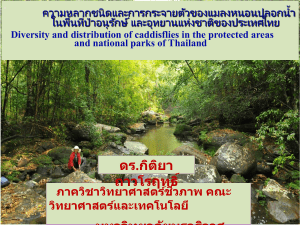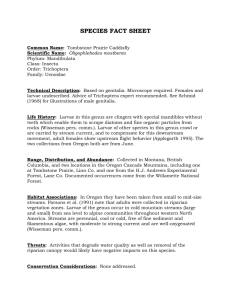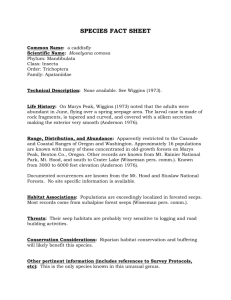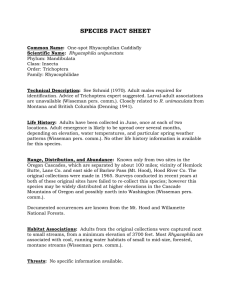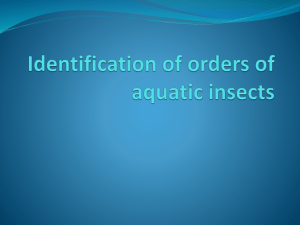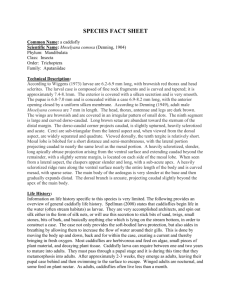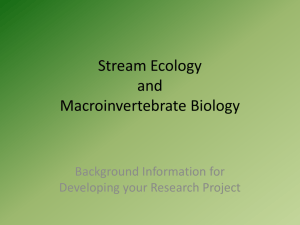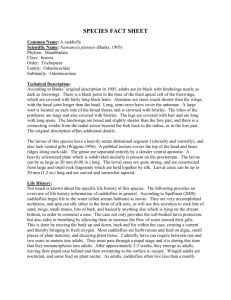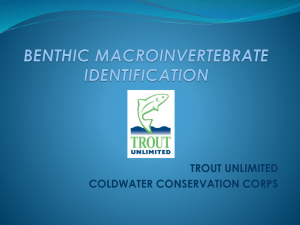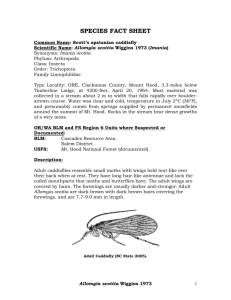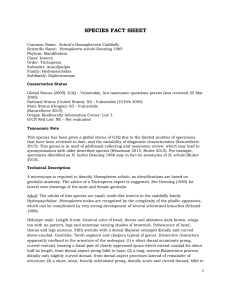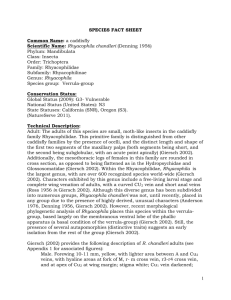Trichoptera
advertisement
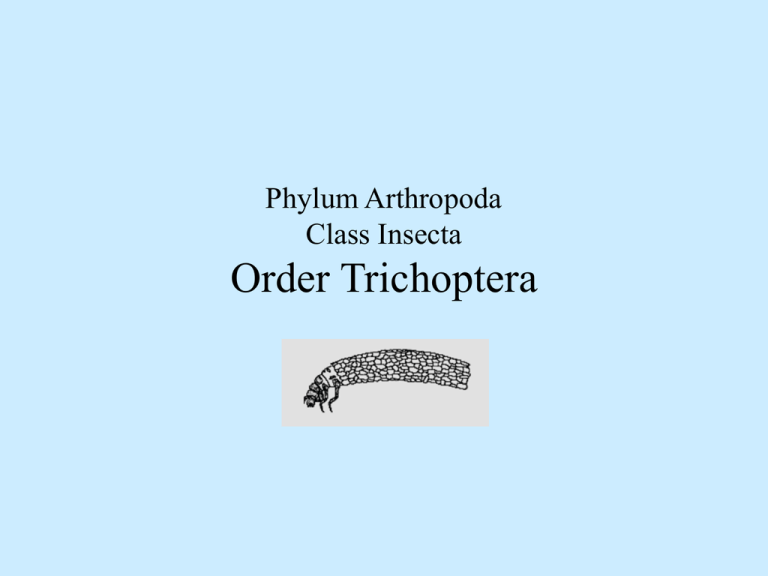
Phylum Arthropoda Class Insecta Order Trichoptera Trichoptera Characteristics • Tricho = hair; ptera = wing; silky hairs cover much of the body and wing • 320 sp in PA (Masteller), >7000 in world. • Adults are nocturnal, weak fliers; most are shortlived; vestigial mouthparts; wings held tentlike over abdomen. • Holometabolous • Most have little economic, but great ecological importance. Adults Larvae and Cases Immatures • Eruciform (caterpillar-like) body • Abdomen often enclosed in case of natural materials such as sticks, plant fragments, sand grains, etc. • Well-developed head capsule • Thread-like abdominal gills usually present in casemakers • Often one pair of hooked prolegs present on terminal caudal appendage Ecological Roles • Grazers/scrapers-feed on biofilm of diatoms and algae comprising the periphyton. Includes some mayflies (e.g., Stenonema) and some caddisflies. • Shredders-feed directly on CPOM, converting it to FPOM. Includes some stoneflies, caddisflies, and cranefly larvae. • Collectors – Filtering collectors-may build a net which they either pick clean or consume, contents and all. Includes many caddisflies (e.g. Brachycentrus and Hydropsyche.) – Gathering collectors-collect FPOM from around and under rocks as well as from interstitial spaces. Includes, among others, mayflies such as Baetis and Ephemerella. • Predators-examples include most beetle larvae and most stonefly larvae. References Masteller, E. Trichoptera of Pennsylvania http://bio.bd.psu.edu/ecm/trichoptera.html Wright, M. Key to Trichoptera (Caddisflies) of Pennsylvania http://www.washjeff.edu/Chartiers/Chartier/KEY/Trichoptera/trikeytofamily.html
